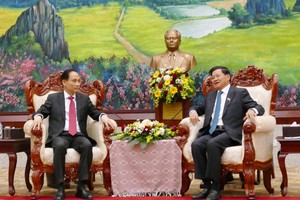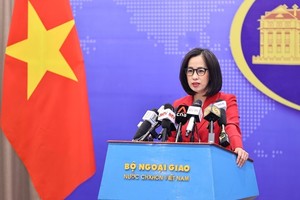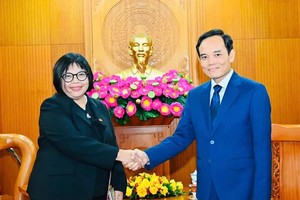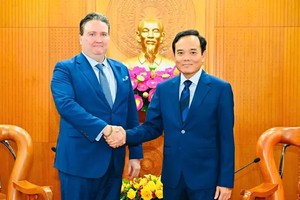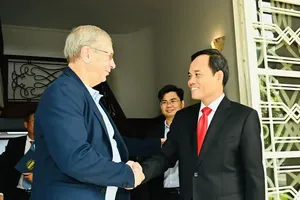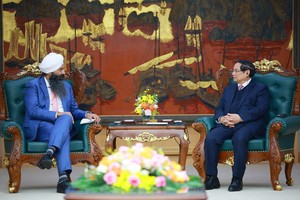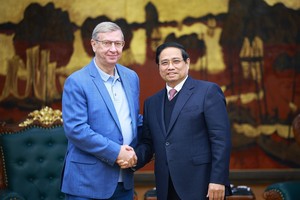
The event was co-organised by the Asian Forum for Human Rights and Development (FORUM-ASIA), the ASEAN Parliamentarians for Human Rights (APHR), and the Centre for Strategic and International Studies (CSIS).
It drew the participation of human rights experts, political figures, representatives from civil society organisations, activists, practitioners, and academicians from ASEAN, to highlight key events, challenges, opportunities, and recommendations in light of the AICHR 10-year review.
The dialogue is also hoped to activate collective political action to strengthen the AICHR’s protection mandate through proposals and strengthen the protection practices, with a view to enhance the protection of human rights in the region.
Speaking at the event, Deputy Minister of Foreign Affairs of Indonesia M. Fachir stressed that the AICHR needs to protect the rights of ASEAN people, not simply promoting human rights justice.
In its 10th year, the AICHR needs a new breakthrough to improve efficiency in the region. The commission could boost innovation to maximise the protection of human rights and to make contributions to the development and peace maintenance in the region, he added.
Phillips Vermonte, researcher at CSIS Jakarta, affirmed that over the past decade, the AICHR has successfully promoted regional instruments, including the ASEAN Human Rights Declaration (AHRD) 2012, the Master Plan on ASEAN Connectivity 2025, and the Mainstreaming the Rights of Persons with Disabilities in 2018.
He added that the future will be brighter if countries in the region work together closely in socio-economic development, peace, and security, including human rights.
At the event, delegates reviewed achievements of the AICHR so far, such as the AHRD, the ASEAN Consensus on the Protection and Promotion of the Rights of Migrant Workers in 2016, as well as the ASEAN Convention Against Trafficking in Persons (ACTIP) in 2017.
Since its establishment, the AICHR is tasked with developing strategies for the promotion and protection of human rights and fundamental freedoms of peoples in ASEAN through the education, monitoring, and dissemination of information on human rights standards as prescribed by the Universal Declaration of Human Rights, the Vienna Declaration and Programme of Action, and other international human rights instruments.
